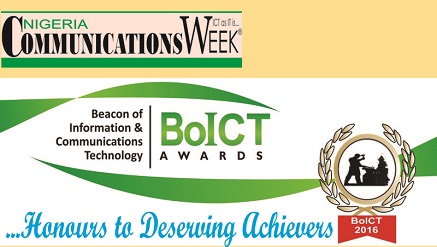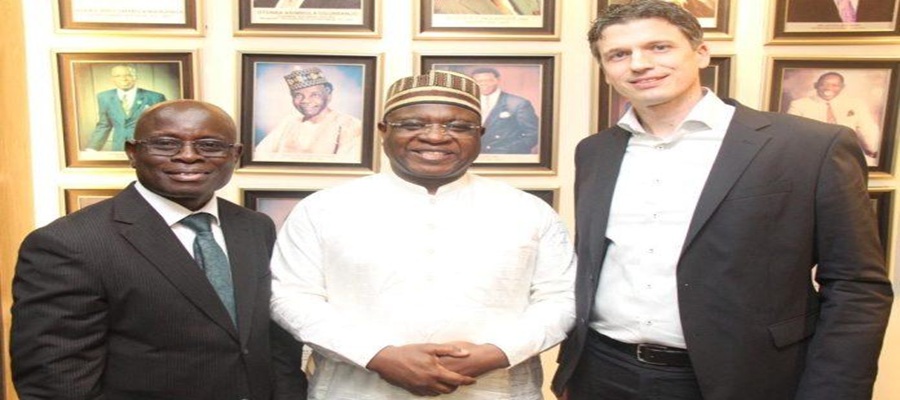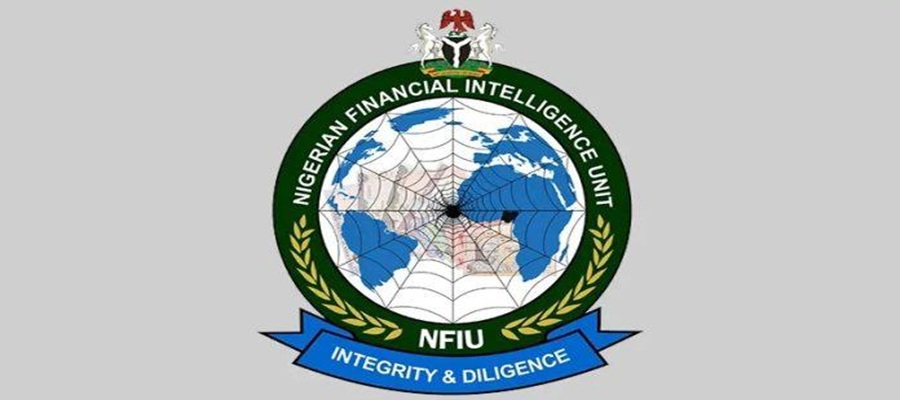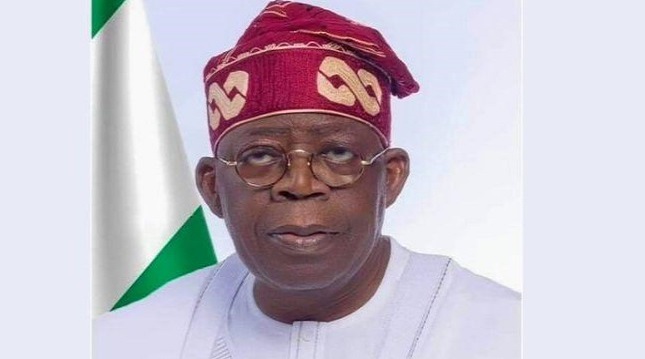News
Roll of Honours at Beacon Of ICT Lecture/Awards 2016

CommunicationsWeek Media Limited, publishers of Nigeria CommunicationsWeek online and print editions, last weekend, rolled out the drums to celebrate individuals, private and public organisations, as well as, startups, that have distinguished themselves in the Nigeria’s ICT space or different industries they represent.
The Beacon of ICT Awards are annual ICT awards recognizing organizations’ or individuals’ contributions to ICT development in Nigeria, and the world at large.
The award was established in March 2009 by Ken Nwogbo, a Nigerian columnist and founder of Communication Week Media Limited, publishers of Nigeria CommunicationsWeek, a leading Nigerian information and communications technology newspaper headquartered in Lagos State.
The award ceremony was proceeded by a distinguished lecture delivered by Mr. Ayotunde Coker, managing director of Rack Centre, on the theme: “Data Centre as Kiln of Industrialization and Transformation”.
Coker stressed the importance of data centres to the growth of any modern economy and the need for local businesses to store sensitive data locally. He was of the opinion that this will have massive and positive effect on the GDP of the country.
With the Nigerian Army Band mesmerizing the guests with blends of highlife and classical music, the roll of honours were called, with Ayotunde Coker awarded the Nigeria CommunicationsWeek Man-Of-The-Year award; Engineer Lanre Ajayi, the ever vocal president of the Association of Telecommunications Company of Nigeria (ATCON), receiving “Life Time Achievement Award”; ICT Software Personality of the year went to John Obaro, MD, SystemSpecs; ICT Journalist of the year went to Chukwuemeka Fred Agbata Jnr. “CFA” presenter, Tech Trends on Channels TV and Mr. Biodun Omoniyi was named the “ICT Personality Of The Year.
On Corporate categories, VDT Communications received “Bandwidth Company of The year Award”; as the “Internet Company Of The Year” award went to Globacom (Nigeria); Rack Centre received the “ICT Infrastructure Of The Year (Data Centre)” award; Vodacom Business Nigeria scored double, emerging “Cloud Services provider of The Year” and “Enterprise Solutions provider Of the Year”. Interestingly, “Software Company of the Year” and “IT Implementation & Support Company of The Year” awards went to FinTrak Software (Limited); Computer Warehouse Group Plc, took home, “Banking Application Of The Year (Finacle)” award.
Sidmach Technologies Nigeria Limited, with a knack for education based software, they smiled home, “Indigenous Software Company of the Year” and the “ICT Innovator Of the Year” awards. Spectranet, offering smart internet for the home and office, emerged, “Broadband Company of the Year”, Business Connexion received the “ICT Solutions Provider of the Year”.
Digital Encode, a leading consulting and integration firm founded in 2003 that specializes in the design, management, and security of business-critical networks, telecommunications environments and other information technology infrastructure, emerged “Cyber-Security Company of the Year”; in same vein, Global Accelerex bagged, “ePayment Innovative/Value Added Services provider Of The Year; “ICT Clearinghouse of the Year” award went to Medallion Communications Limited; Path Solutions received, “Islamic Banking Solution Provider Of The Year”. While CNSSL Call Centre Limted was named the “BPO Operator Of The Year”, OLX Nigeria was named the “Classified Ad Website Of The Year”.
The Logistics Company for the World, DHL received, “Courier Operator Of The Year”; Dataflex are the receivers of “ICT Company of the Year” and McAfree and SSL received the “Information Security Product of the Year”.
Oradian, a Fintech company behind Instafin, the multi-award winning core-banking platform that built a solution to the challenges faced by Microfinance Institutions around the globe, was named the “Most Innovative Core-Microfinance Banking Platform Of The Year”; Zenith Bank received the “eBank Of The Year”; Internet Solutions- “Internet Service Provider Of The Year”; 21St Century Technologies- “Technology Company Of The Year”; Sophos Group Plc, which tackles IT security challenges with clarity and confidence, emerged, “Information Security (Hardware) Provider Of The Year”; Wi-Pay Technologies won the “ePayment Solutions Provider Of The Year”; Resourcery emerged the “ICT Business Integrator Of The Year”; while Phase3 Telecoms won the “Fibre Optic Company of The Year”.
Wakanow.com won the “Travelers Portal Of The Year”; Infinix Mobility smiled home with the “Mobile Phone Of The Year” following the achievements in Nigerian smartphone market since launch in 2013 and the Guaranty Trust Bank Plc (GTbank) emerged the “Mobile Money Operating Bank Of The Year”.
Speaking on the awards, Mr. Ken Nwogbo, publisher/editor in-chief, CommunicationsWeek Media, said that the Beacon of ICT Distinguished Lecture and awards was designed to explore efforts to put Nigeria on the global information and communications technologies map.
He said that the awardees have demonstrated some levels of expertise, and distinguished themselves in the industries they represent, “as reflected in the online voting process. Even those that were given special awards was because they lived above competitions. We are very proud of the awardees”.
He added that CommunicationsWeek Media Limited will continue to support the development enterprises and human capital in Nigeria.
News
NGX Unveils Net-Zero Plan for Greener Capital Market

Nigerian Exchange Limited (NGX) has launched the NGX Net-Zero Programme to guide listed companies toward clear carbon reduction pathways and enhanced climate disclosures aligned with global investor standards.

NGX
The high-level launch engaged chief executives of quoted firms alongside development partners including German Investment Corporation KfW, DEG, and African Foresight Group (AFG), NGX’s implementation partner. Issuers and investors discussed financing decarbonisation, sustainability practices, and attracting climate-aligned capital.
NGX Group Chairman Dr Umaru Kwairanga described the initiative as concrete climate action, commending partners for two years of groundwork. “Today marks leadership and decisive action. Climate change has become a core business imperative, with capital markets mobilising capital and setting standards,” Kwairanga said.
He positioned NGX Net-Zero to support emissions measurement, disclosure, capacity building, and sustainable finance access, urging CEOs to embrace it strategically rather than as compliance. Kwairanga reaffirmed NGX’s goal to make Nigeria’s capital market Africa’s green finance hub.
Group CEO Temi Popoola called climate action a business imperative, noting sustainability-embedded firms attract capital, manage risks, and stay competitive. DEG Management Board Member Monika Beck highlighted partnerships scaling impactful, commercially viable climate solutions.
The event closed with a ceremonial gong marking the programme launch and send-off for outgoing DEG Regional Director Bernd Telemann.
News
Nigeria Off EU High-Risk Money Laundering List in Major Financial Win

Nigerian Financial Intelligence Unit (NFIU) has hailed Nigeria’s removal from the European Union’s list of high-risk third countries for Anti-Money Laundering and Countering the Financing of Terrorism (AML/CFT) as a landmark achievement endorsing the nation’s reform efforts.

Nigerian Financial Intelligence Unit (NFIU)
NFIU CEO Hafsat Abubakar Bakari said the delisting, contained in European Commission Delegated Regulation (EU) C (2025) 8460 adopted December 4, 2025 and effective January 29, 2026, affirms sustained AML/CFT and Counter Proliferation Financing (CPF) reforms.
The move follows Nigeria’s exit from the FATF Jurisdictions under Increased Monitoring after addressing strategic deficiencies, alongside Burkina Faso, Mali, Mozambique, South Africa and Tanzania.
Bakari noted the European Commission recognised Nigeria’s strengthened AML/CFT effectiveness, closed technical gaps, and fulfilled FATF Action Plan commitments leading to grey list removal in June and October 2025.
The delisting eliminates enhanced due diligence requirements for EU financial transactions, easing compliance, boosting cross-border flows, and enhancing Nigeria’s appeal for European trade, investment and partnerships.
The NFIU attributed success to President Bola Ahmed Tinubu’s political will and collaboration among National Assembly, law enforcement, regulators, judiciary, private sector and development partners.
The agency reaffirmed commitment to ongoing FATF, GIABA, EU engagement and domestic framework resilience to maintain international confidence in Nigeria’s financial system.
News
FG Directs Banks, Fintechs to Remit VAT on Service Fees

The Federal Government has directed all banks and fintechs to collect and remit 7.5 per cent value-added tax on certain electronic banking services, effective Monday, January 19, 2026, according to an email notice issued by payment platforms.

The VAT will apply to electronic banking charges, including mobile money transfers, USSD transaction fees, and card issuance fees, according to an email notice on Wednesday shared with customers by Moniepoint.
For example, if a bank charges N100 to make a transfer, the 7.5 per cent VAT will be applied to that service fee, not the money being sent.
“From Monday, January 19, 2026, we are required to collect a 7.5 per cent VAT, to be remitted to the Nigerian Revenue Service (formerly known as the Federal Inland Revenue Service).
“VAT will apply to certain banking services that include electronic banking charges such as mobile banking fees (transfers), USSD transaction fees, and card issuance fees,” the email read.
Other operators are expected to issue similar notices to their customers in the coming days. Services that will remain exempt include interest earned on deposits and savings, meaning customers will not pay tax on the returns from their accounts.
The NRS, formerly known as the Federal Inland Revenue Service, has set the deadline to ensure that all commercial banks, microfinance banks, and electronic money operators comply with the collection and remittance requirement.
Moniepoint stressed that this is not a price increase but a statutory obligation. “Moniepoint is required to collect and remit VAT to the Nigerian Revenue Service,” the company said in a statement.
The move is part of the government’s broader efforts to standardise VAT collection on digital financial services and expand revenue generation amid Nigeria’s growing digital economy. VAT on banking transactions is not entirely new; the NRS is now enforcing uniform collection rules across all platforms, ensuring compliance across the sector.
Customers have been assured that the new tax will be clearly itemised, with the VAT shown separately on transaction statements and reports.
In December, several commercial banks informed customers that the N50 stamp duty would be deducted on electronic transfers of N10,000 and above, following the commencement of provisions of the new Tax Act.
The charge, previously known as the EMTL, has now been formally reclassified as stamp duty and will be applied as a one-off fee on qualifying electronic transfers.

 E-Financial2 days ago
E-Financial2 days agoAngst as FG Demands 7.5 Percent VAT on Mobile Bank Transfers, USSD

 News2 days ago
News2 days agoMoniepoint Launches Second Cohort of DreamDevs Initiative to Double Down on Africa’s Tech Talent Pipeline

 E-Financial2 days ago
E-Financial2 days agoNGX lists 3.156bn UBA shares, boosting capital to N513Bn

 E-Financial2 days ago
E-Financial2 days agoThe Missing Pieces in Nigeria’s Banking Recapitalisation

 Telecom2 days ago
Telecom2 days agoGlo Unveils Immersive Gaming Experience, Travel Saga

 E-Business2 days ago
E-Business2 days agoHalf of Global Companies Build SOCs to Enhance Cybersecurity, with a Focus on Human Expertise

 General News2 days ago
General News2 days agoNITDA DG Reaffirms Nigeria–U.S. Partnership on Data Privacy, AI and Cybersecurity

 General News2 days ago
General News2 days agoParadigm Initiative Condemns the Internet Shutdown and Media Restrictions in Uganda Ahead of the 2026 General Election















